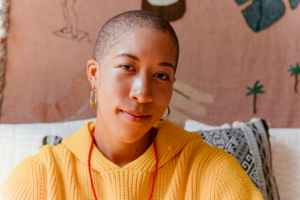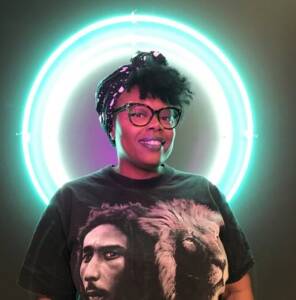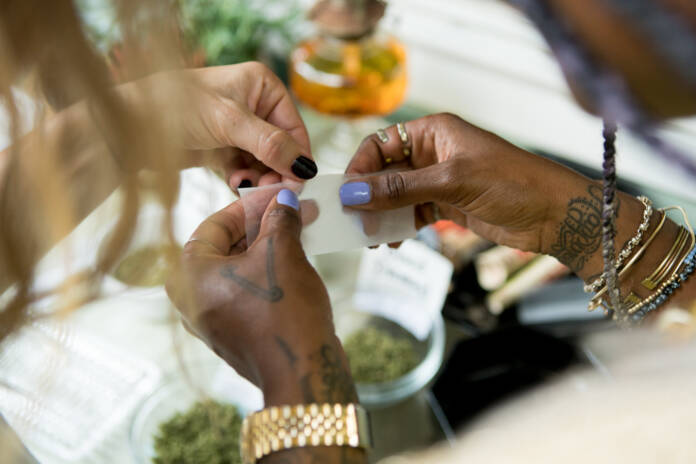On Thursday, hundreds of people who work in the marijuana industry gathered for a virtual event called “allyship + weed” convened by cannabis brand strategists Humble Bloom and the online store and weed education platform Miss Grass. For just shy of four hours, participants heard from panelists on challenges to inclusion within marijuana. They explored the liberatory consciousness model, listened to Drug War justice spoken word by artist Sadenia Sivad, and even played a card game featuring reflection prompts meant to develop one’s capacity for empathy.
The earnestness was palpable in moments of audience participation, but frequent calls from organizers to donate to the the Movement For Black Lives kept participants from thinking mere self reflection will save the day. Given the brutal racism of prohibition and inequities that have continued well into marijuana’s legalization era, there may be few industries as deeply grounded in white supremacy as cannabis.
The notion that people of color need to be the ones to say how these issues will be fixed is part of the logic behind the Floret Coalition, an anti-racist coalition of cannabis businesses.
“Being a Black person in the States, we don’t see ourselves sitting at the board table, making the big decisions for these cannabis companies,” says Floret Coalition board member and industry entrepreneur Maya Shaw. “Meanwhile, the Black community has been hit hardest by the War on Drugs here in America. So it’s kind of like, ‘What do you mean I can’t have a say?’”

In 2018, some 600,000 people were charged with marijuana possession in the United States. According to the ACLU, Black people are arrested for having cannabis on their person at nearly four times the rate of whites.
Legalization barely pushes the needle when it comes to increasing racial justice for Black cannabis entrepreneurs. They are often blocked from accessing the kind of capital required to navigate the hefty licensing fees and permitting structures of state and municipal cannabis regulation. Many of the social equity programs local governments have instituted to ensure support of Black and Brown cannabis entrepreneurs have proven clunky and ineffective. The recent debacle of marijuana personality Dabbing Granny’s use of the n-word shows how these structural problems can lead to overt racism in the cannabis space.
Happily, this protesting, change-making summer has seen a watershed of new, BIPOC-led cannabis justice initiatives.
The Floret Coalition’s model is based on companies committing to donate a monthly dollar amount to an organization of its board’s choosing. (The Coalition’s definition of what makes a cannabis company is loose—one of the first brands to sign up was a catnip toy company that makes spliff-shaped kitty-medicated plushies.)
The inaugural board has a holistic view of what it takes to improve and empower Black and Brown people via cannabis industry resources. Though the Floret Coalition was originally conceived by marijuana lifestyle magazine Broccoli and its editor Anja Charbonneau, it is guided by the vision of three Black women and non binary inaugural board members with deep roots in cannabis culture.
“As marginalized people we’ve learned that we have to protect our own communities because no one else will,” says Floret Coalition board member Mennlay Golokeh Aggrey. “This isn’t to say that non-BIPOC people can’t show up and don’t show up. But I think we’re more engaged to correct the racial wrongs within the cannabis industry because most of us have gone through the system, or seen our family members and friends who have borne the deepest scars of the War on Drugs.”
Diverse leadership should prove to one of the keys to the effectiveness of the Floret Coalition and other cannabis justice projects.
“Because you don’t want to do something that’s just for optics,” says Shaw. “You want to actually support the movement.”

Shaw ran an eponymous online store of cannabis accoutrement crated by women-identifying and LGBTQIA artists. On the board of the Floret Coalition, she is joined by Mexico City cannabis history researcher and co-founder of Xula CBD Golokeh Aggrey, and Kassia Graham, the director of national projects and social media for influential and social justice-minded cannabis marketing platform Cannaclusive.
Board members have made it clear that the Floret Coalition must work with worthy non-profits both inside and outside of the cannabis space—an idea that has been fleshed out by writer Tiara Darnell in an article published by Broccoli.
“We’re looking at the entire ecosystem of community,” says Graham, a Jamaican American whose Rastafarian great-uncle taught her the healing powers of cannabis early in life. They say there is already a shortlist of groups to which the Floret Coalition is considering directing donors. Some are within the educational space, some support farming. Others protect Black trans women.
“We’re also going to be giving to some mutual aid organizations that are not necessarily registered non-profits,” says Graham. “We believe in communities helping each other and themselves.”

That expansive vision appears to have resonated with cannabis businesses. Broccoli announced that within the first two days of the announcement of the Floret Coalition, 44 brands had signed on to donate $19,800 over the course of six months. Organizers expect that number to surge as word gets out about the project.
“The response has been beautiful,” says Golokeh Aggrey. “I think you often find that women (especially Black women) tend to be the ones to nurture and looks after others in their community. But we’re hoping and expecting to receive more pledges from a broader group of cannabis and cannabis-adjacent companies. There’s room for all of us.”
The initiative is far from the only project in which the weed industry is taking responsibility for the racism from which many of its white players benefit. Cannaclusive’s Accountability List was launched as a way to encourage cannabis companies to be transparent about their anti-racism practices. The list offers various metrics for tracking success in this mission, from stocking BIPOC-run brands to ensuring the racial diversity of employees at all levels.
Graham works on the Accountability List and also collaborates with cannabis marketing consultant Kieryn Wang to maintain InclusiveBase, a database meant to connect consumers with BIPOC-led cannabis companies.
Industry-funded anti-racism efforts also include Colorado’s Color of Cannabis, which has announced a series of August workshops to help get individuals’ records expunged of cannabis-related crimes. Legal reform-minded Last Prisoner Project is led by a board guided by former and current incarcerated individuals. The Cannabis Cultural Association, Minority Cannabis Business Association, Supernova Women, Equity Sessions, Equity Organization, and Drug Policy Alliance are all playing important roles in ensuring that the cannabis industry will have a more racially equitable future through education and advocacy. Surely, their effectiveness will hinge on white cannabis leaders accepting that their role is to assist people of color in creating the solutions to industry inequities.
“It’s so important for us to be able to have a seat at the table,” says Shaw. “To say, ‘Here’s what needs to be done to make this right.’”







